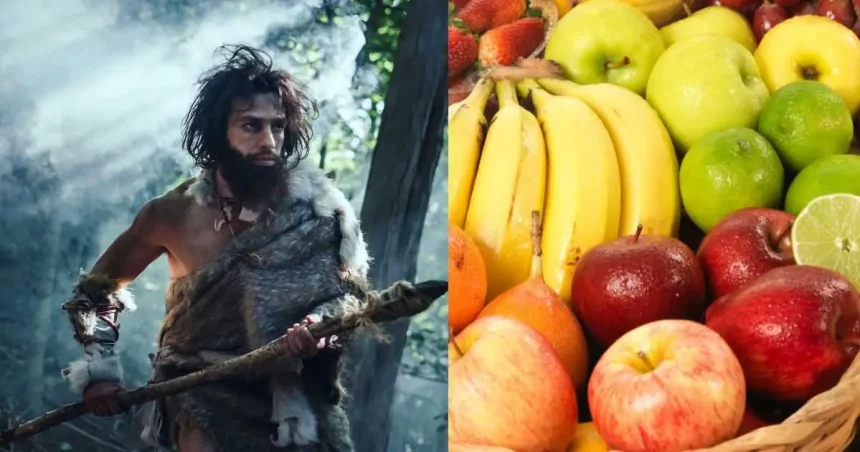In the intricate tapestry of human history, the diets of our ancient ancestors stand out as a captivating thread. From the stereotypical image of cavemen as fierce hunters to the rise of the Paleo diet, our knowledge of early human nutrition has long been shaped by assumptions and guesswork. However, recent discoveries have rocked the scientific community, challenging the very core of what we thought we knew about the eating habits of our distant forebears.
Enter a groundbreaking study that has emerged from the depths of research, shedding new light on the dietary practices of a specific group of prehistoric individuals: the Iberomaurusians. Get ready to embark on a journey of exploration as we delve deep into this mind-boggling revelation. It’s a tale that will challenge your beliefs and spark your curiosity, leaving you eager to uncover the truth behind the mysterious diets of our ancestors. So, hold on tight and brace yourself to feast your mind on a story as intriguing as it is surprising. The question lingers: Were cavemen really vegans? Join us as we unravel the mysteries of ancient diets and reveal the shocking truth lying beneath the surface.
Rethinking the Paleo Diet
The Paleo diet, often seen as a return to our primitive roots, has long been associated with the consumption of meat, fish, fruits, and vegetables. However, recent research challenges this traditional notion, suggesting that our Paleolithic ancestors might have had a diet quite different from the typical “caveman” fare we have come to know.
While the prevailing belief was that early humans relied mostly on animal protein, thanks to iconic images of hunters taking down massive mammoths, a closer look at archaeological evidence and modern scientific methods paints a different picture.
According to a study published in the Nature Ecology & Evolution Journal, researchers analyzed chemical signatures found in the remains of the Iberomaurusian people, a group of hunter-gatherers who lived in North Africa during the Paleolithic era. By examining nitrogen and zinc isotopes in teeth enamel and collagen, the research team aimed to reconstruct the dietary patterns of these ancient individuals.
Contrary to popular belief, the findings hinted at the significant role of plants in the Iberomaurusians’ diet. Zineb Moubtahij, the lead author of the study, highlighted the importance of this discovery, stating, “Our analysis revealed that these hunter-gatherer groups included a substantial amount of plant matter, wild plants in their diet, reshaping our understanding of the diet of pre-agricultural populations.”
This revelation challenges the conventional narrative surrounding the Paleo diet and triggers a reassessment of our assumptions about ancient eating habits. While the Paleo diet promotes lean meats, fish, fruits, and vegetables, it appears that our ancestors may have relied more heavily on plant-based foods than we previously thought.
The implications of this discovery are profound, suggesting that the diets of early humans were more diverse and adaptable than we imagined. As we continue to unravel the secrets of our ancient past, it becomes clear that our understanding of human nutrition is evolving, and the Paleo diet may not be as “primitive” as once believed.
Through rigorous scientific inquiry and a commitment to challenging long-held beliefs, we move closer to a more nuanced understanding of our shared history and the dietary choices that shaped it. As we peel back the layers of time, one thing is certain: the story of human nutrition is more intricate and fascinating than we ever imagined.
The Study’s Findings
The groundbreaking study published in the Nature Ecology & Evolution Journal provides unprecedented insights into the dietary habits of the Iberomaurusian people, challenging conventional wisdom and reshaping our perception of ancient nutrition.
Employing state-of-the-art scientific techniques, researchers analyzed chemical signatures present in the remains of these prehistoric individuals. By focusing on nitrogen and zinc isotopes in teeth enamel and collagen, the team aimed to unravel the mysteries of the Iberomaurusians’ diets and shed light on their culinary choices.
Surprisingly, the analysis uncovered a notable prevalence of plant-based foods in the Iberomaurusians’ diet. This finding contradicts long-held assumptions about the Paleo diet and challenges the notion that early humans were predominantly carnivorous.
Lead author Zineb Moubtahij emphasized the significance of these findings, stating, “Our analysis revealed that these hunter-gatherer groups included a substantial amount of plant matter, wild plants in their diet, reshaping our understanding of the diet of pre-agricultural populations.”
Further analysis using carbon isotopes supported the hypothesis that plants, rather than meat or fish, might have been the primary source of sustenance for the Iberomaurusians. This revelation not only reshapes our understanding of ancient diets but also prompts a reevaluation of the factors that influenced human evolution and adaptation during the Paleolithic era.
The implications of this discovery extend beyond mere dietary preferences, offering valuable insights into the social, cultural, and environmental dynamics of prehistoric societies. By embracing a more holistic approach to studying ancient nutrition, researchers can paint a richer and more nuanced portrait of our ancestral past.
While the study’s findings are specific to the Iberomaurusian population, they have broader implications for our understanding of human evolution and the role that diet played in shaping our species’ trajectory. As we continue to explore the depths of our shared history, one thing remains clear: the story of human nutrition is a complex and ever-evolving narrative that defies simple categorization.
Insights from the Researchers
The revelations brought to light by the study published in the Nature Ecology & Evolution Journal have sparked a wealth of insights from the researchers involved, shedding light on the broader implications of these groundbreaking findings.
Lead author Zineb Moubtahij emphasized the significance of the research, stating, “Our analysis revealed that these hunter-gatherer groups included a substantial amount of plant matter, wild plants in their diet, reshaping our understanding of the diet of pre-agricultural populations.”
This acknowledgment underscores the seismic shift in our understanding of ancient nutrition and challenges the prevailing narrative surrounding the Paleo diet. By highlighting the role of plant-based foods in the diets of prehistoric populations, Moubtahij and her colleagues have paved the way for a more nuanced understanding of human dietary evolution.
Co-author Klervia Jaouen offered further insights into the implications of these findings, noting that the presence of cavities in the remains of the Iberomaurusians suggests a diet rich in fermentable starchy plants. This observation provides valuable clues about the culinary habits and nutritional practices of ancient societies, painting a vivid picture of the challenges and opportunities they encountered in their quest for sustenance.
While the study’s findings are specific to the Iberomaurusian population, they resonate with broader trends observed in archaeological and anthropological research. Studies examining the diets of other prehistoric populations have similarly highlighted the importance of plant-based foods in the culinary repertoire of ancient societies.
For example, research conducted at archaeological sites… (continue the narrative with additional examples and insights from researchers)
Expanding Our Understanding
The implications of the study’s findings extend beyond the confines of the Iberomaurusian population, challenging our preconceived notions about ancient diets and prompting a broader reevaluation of human nutritional practices.
By challenging the traditional narrative surrounding the Paleo diet and the dietary habits of early humans, researchers have opened the door to a deeper exploration of the factors that shaped our species’ culinary evolution. This newfound understanding not only enriches our appreciation of our ancestral past but also offers valuable insights into the complex interplay between diet, environment, and culture.
While the study’s findings are specific to the Iberomaurusians, they resonate with broader trends observed in archaeological and anthropological research. By challenging long-held assumptions about the Paleo diet and the dietary habits of ancient humans, researchers are able to glean valuable insights into the complex interplay between diet, environment, and culture in shaping our species’ trajectory.
As we continue to unravel the mysteries of our ancestral past, one thing becomes abundantly clear: the story of human nutrition is a multifaceted tapestry woven from countless threads of evidence, interpretation, and discovery. Through rigorous scientific inquiry and a commitment to exploring new avenues of research, we inch closer to a more comprehensive understanding of our shared history and the dietary choices that shaped it.






